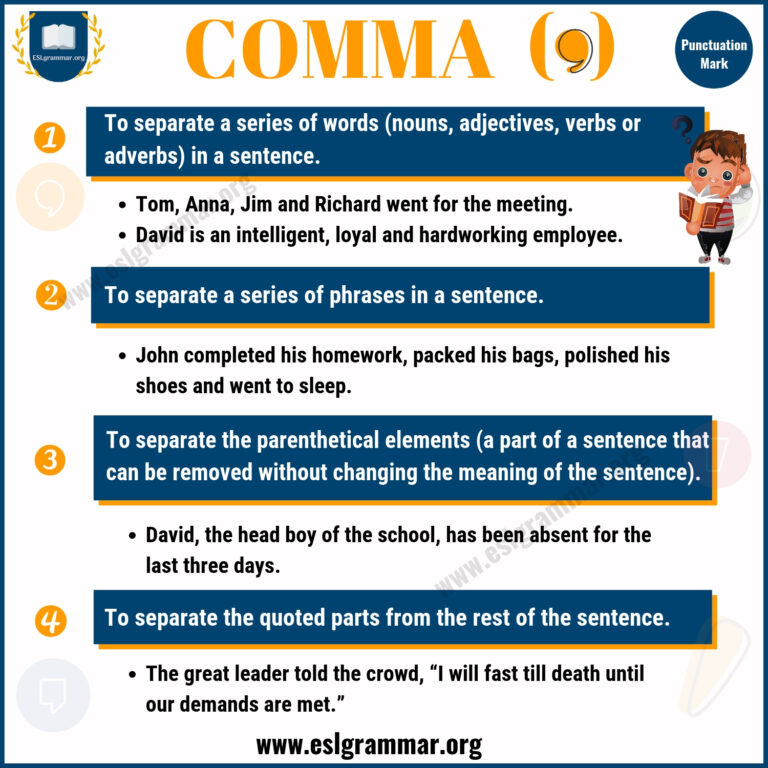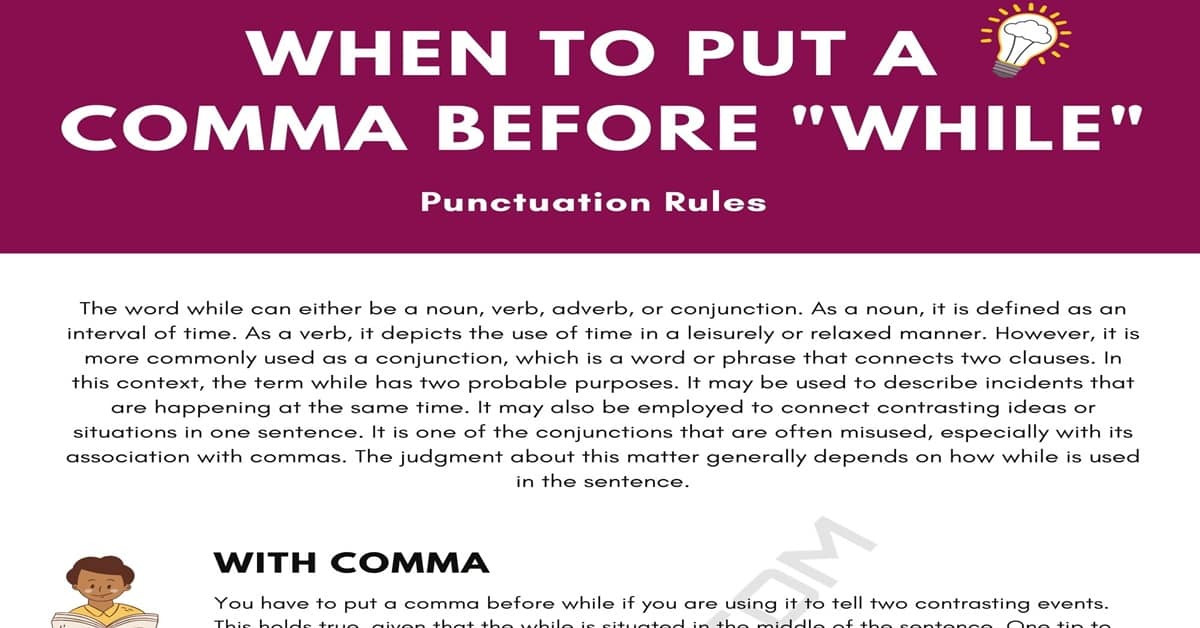Commas can be a tricky punctuation mark to use correctly, but by following a few simple rules, you can become a comma master in no time! Here are 5 important comma rules to keep in mind:
1. Use commas to separate items in a list
Example:

If you're listing two or more items, use commas to separate them. For example, "I need to buy eggs, bread, milk, and cheese at the grocery store." Without the commas, the sentence can be confusing and difficult to read.
2. Use commas to separate independent clauses in a sentence
Example:

If a sentence contains two independent clauses that are joined by a coordinating conjunction (such as "and," "but," "or," etc.), use a comma before the conjunction. For example, "I love to read, but my sister prefers to watch TV." Without the comma, the two clauses can run together and become difficult to understand.
3. Use commas to set off nonessential phrases and clauses
Example:

If a sentence contains a phrase or clause that is not essential to the meaning of the sentence, use commas to set it off. For example, "My sister, who lives in New York, is coming to visit me next week." The phrase "who lives in New York" provides additional information, but the sentence would still make sense without it.
4. Use a comma before a coordinating conjunction in a compound sentence
Example:

If a sentence contains two independent clauses joined by a coordinating conjunction, use a comma before the conjunction. For example, "I went to the gym, and then I went to the grocery store." Without the comma, the sentence can be difficult to read.
5. Use a comma before a subordinating conjunction in a complex sentence
Example:

If a sentence contains a main clause and a subordinate clause joined by a subordinating conjunction, use a comma before the subordinating conjunction. For example, "After I finish my homework, I'm going to watch TV." Without the comma, the sentence can be confusing.
Tips and Ideas for Using Commas
Now that you know some basic comma rules, here are some additional tips and ideas to help you use commas effectively:
- Don't use a comma to separate a verb from its subject or a subject from its predicate. For example, "The car drove away quickly" does not need a comma between "car" and "drove."
- Don't use a comma to separate a preposition from its object. For example, "I'm going to the store" does not need a comma between "store" and "I."
- Use commas sparingly. Using too many commas can make a sentence difficult to read.
- If you're not sure whether to use a comma, try reading the sentence out loud. If you pause naturally, a comma may be needed.
How to Avoid Common Comma Mistakes
Now that you know some tips and ideas for using commas, here are some common comma mistakes to avoid:
- Don't use a comma to separate two verbs that are not independent clauses. For example, "I want to eat pizza and drink soda" does not need a comma between "eat" and "pizza."
- Don't use a comma to join two independent clauses without a coordinating conjunction. For example, "I went to the store, I bought some milk" is a comma splice and is incorrect.
- Don't use a comma to separate two complete thoughts. For example, "I'm going to the store, it's raining outside" is a run-on sentence and is incorrect.
- Don't use a comma to separate the subject and predicate of a sentence. For example, "My cat, is black and white" is incorrect.
Read more articles about Example Sentence With Comma


